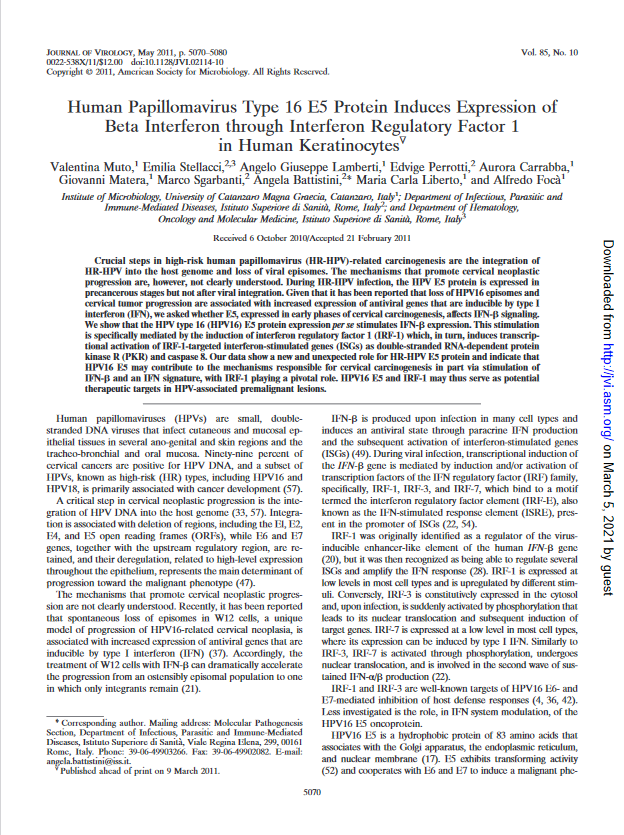05.03.2021
Human Papillomavirus Type 16 E5 Protein Induces Expression of Beta Interferon through Interferon Regulatory Factor 1 in Human Keratinocytes
Journal of Virology, 2011
Abstract
Crucial steps in high-risk human papillomavirus (HR-HPV)-related carcinogenesis are the integration of HR-HPV into the host genome and loss of viral episomes. The mechanisms that promote cervical neoplastic progression are, however, not clearly understood. During HR-HPV infection, the HPV E5 protein is expressed in precancerous stages but not after viral integration. Given that it has been reported that loss of HPV16 episomes and cervical tumor progression are associated with increased expression of antiviral genes that are inducible by type I interferon (IFN), we asked whether E5, expressed in early phases of cervical carcinogenesis, affects IFN-β signaling. We show that the HPV type 16 (HPV16) E5 protein expression per se stimulates IFN-β expression. This stimulation is specifically mediated by the induction of interferon regulatory factor 1 (IRF-1) which, in turn, induces transcriptional activation of IRF-1-targeted interferon-stimulated genes (ISGs) as double-stranded RNA-dependent protein kinase R (PKR) and caspase 8. Our data show a new and unexpected role for HR-HPV E5 protein and indicate that HPV16 E5 may contribute to the mechanisms responsible for cervical carcinogenesis in part via stimulation of IFN-β and an IFN signature, with IRF-1 playing a pivotal role. HPV16 E5 and IRF-1 may thus serve as potential therapeutic targets in HPV-associated premalignant lesions.
High Sensitivity Human Interferon Beta ELISA (Catalog No. PBL-41415-1) was used in this study.
>> View article


